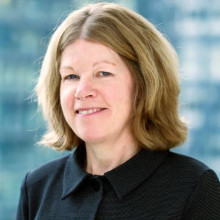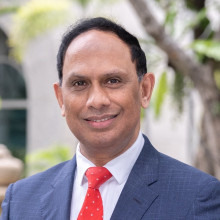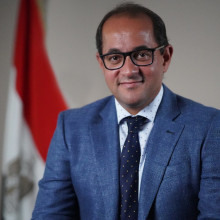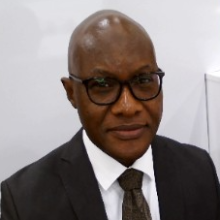
Future Global Action Plan on Housing and Infrastructure Finance roundtable
UN-Habitat
(By invitation only)
Summary
WUF12 comes at a very critical turning point in the middle east and after the summit of the future in United Nations and the issuance of the pact for the future that pledged key actions towards sustainable, safe and inclusive world. The world in general and the Middle East in particular are at turning points requiring acceleration of sustainable development goals and protecting achievements of development gains with peace and security models. Tailored sustainable urban development models are generally rich in many middle eastern countries and in Egypt as well. Adapting Egyptian sustainable urban development models to international norms via preserving local inclusive, safe and resilient cities, communities and societies are key to any successful effort since all start at home. Our Home is here with a new urban development strategy that rises from the aspiration of people, with people and by people.
In Egypt, only 7% of its territory accommodated with more than 110 million inhabitants in high dense and compact communities. In the meanwhile, every year there is a high rate of population growth with about 2.5 million inhabitants that require more houses, services and jobs. Accordingly, in 2014, the Egyptian government prepared a national strategy for sustainable development 2052. The main goal of this strategy is to improve the quality of life and to ensure that no one lefts behind. Upgrading informal areas, subsidize the social housing and development of the existing communities are targets of the Egyptian government that require billions of dollars. The Egyptian government has succeeded to make the balance on financing these social development projects by creating different national investment projects for local and international markets. Accordingly, in order to remain the completion of the governmental commitments to people and to ensure that no one lefts behind, collaboration is required. Partnership between public and private sectors and collaboration between the national and intentional stakeholders are all necessary.
Objectives
Since one of the key messages of WUF12 is all works together, international cooperations on urban finance is the hope that may take place at different levels. It includes knowledge-sharing, technical assistance, capacity-building and direct or indirect financial assistance in the form of grants, loans and guarantees. Achieving SDGs at the local levels through a comprehensive strategy and several action plans in terms of sustainable, green and smart urbanism is a requirement for the next phase of the New Republic of Egypt.
Moreover, Egypt owns a large stock of investment opportunities resulted from a successful vision that have been started since 2014 to date. Exporting these investment projects has become one of the common goals among different stakeholders in the Egyptian real-estate industry and that comes in line with the government’s efforts to open the business field for foreigners so they can own, operate and scale up their business.
Mobilizing adequate revenues to meet frequent expenditures and make long-term investments in support of inclusive and sustainable local development is also a strategic role for most countries, especially, the least developed countries. Revenue mobilization and management is therefore very challenging both at the national and local levels.
Guiding questions
- How financing can be provided through the private sector?
- What additional financing resources can be provided through international organizations?
- What capacities do Egypt governments need to effectively use the different financing and funding options?
- How Egypt can enhance the regulatory environment, navigating bureaucratic procedures, legal frameworks, and ensuring transparency for investors?
- What policy tools and financial mechanisms do policy makers use that promote access to affordable decent housing and basic services?
Session highlights
Part one: Sustainable financing model for urban development
As the world continues to rapidly urbanize, investment in good urbanization holds the key to sustainability. Global challenges like mitigating climate change, combating poverty, managing natural resources, revamping urban infrastructure and social inequality will be increasingly won or lost in cities. Financing sustainable urbanization is therefore an investment in our present and future. The discussion aims to define how activities supporting the implementation of the 2030 Agenda on Sustainable Development in connection with the achievement of the SDG 11 that are financed through different approaches at national and local levels. Local government capacity should be expanded to enhance private sector participation, leverage local assets through value capture, and partner with international stakeholders to invest in urbanization.
Part Two: Boosting real estate export and activate investment funds
The urban development and real-estate investment in Egypt is one of the significant sector that contributed to the national economic growth in the past ten years. This sector has received great efforts, and a series of economic reforms were implemented to improve the investment climate and strengthen participation of the private sector. The government’s vision is to export real estate projects and the activation of investment funds. This vision have two effects on the Egyptian Real Estate market; first it will force developers to raise development standards to meet requirements for foreign markets, which will effectively improve quality of developments. Second it will also increase market competitiveness as well as change the type of development based on the larger international demand.
Agenda
Welcome message | |
An opening remark : Prime Minister (Dr.Moustafa Madbouly) | |
| |
Panel (1) : Sustainable financing model for urban development (45 minutes) | |
Minister of Planning and International Cooperation | Dr.Rania A. Al-Mashat |
Minister of Finance | Mr.Ahmed Kouchouk |
UN-Habitat Executive Director (TBC) | Ms.Anacláudia Rossbach |
The World Bank | TBC |
Moderator | Dr.Rania Hedaya |
| |
Introduction to the big investment projects in Egypt (movies) | Dr. Abdelkhalek Ibrahim |
| |
Panel (2): Boosting real estate export and activate investment funds (45 minutes) | |
Minister of Investment | Mr. Hassan Alkhatib |
Minister of Housing, Utilities and Urban Development | Eng. Sherief Alsherbini |
Administrative Capital for Urban Development - ACUD | Eng. Khaled Abbas |
Talaat Mostafa Group | Mr. Hisham Talaat |
Moderator | Dr. Tarek El Sheikh |
Discussion and closing remarks |
|




